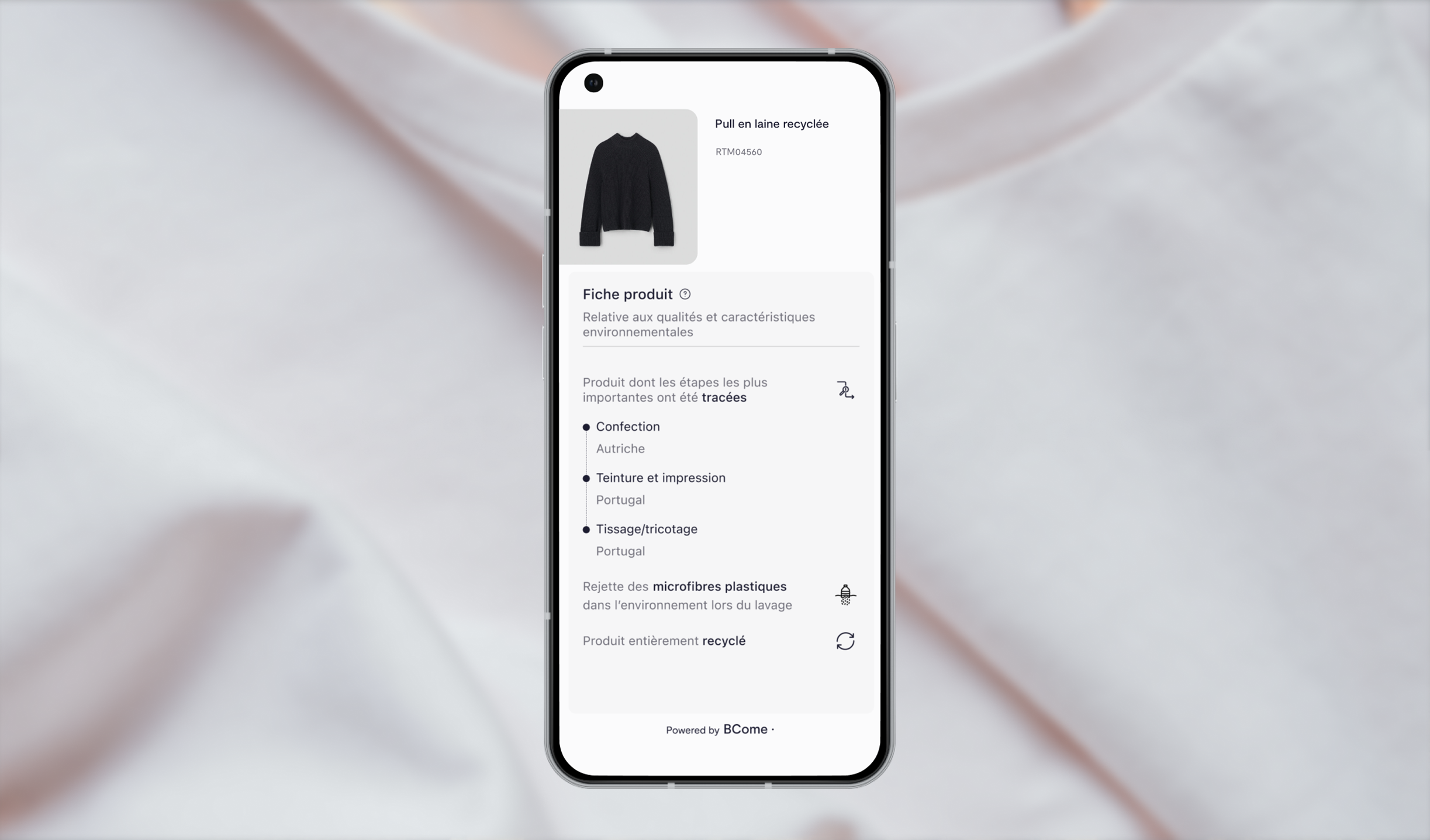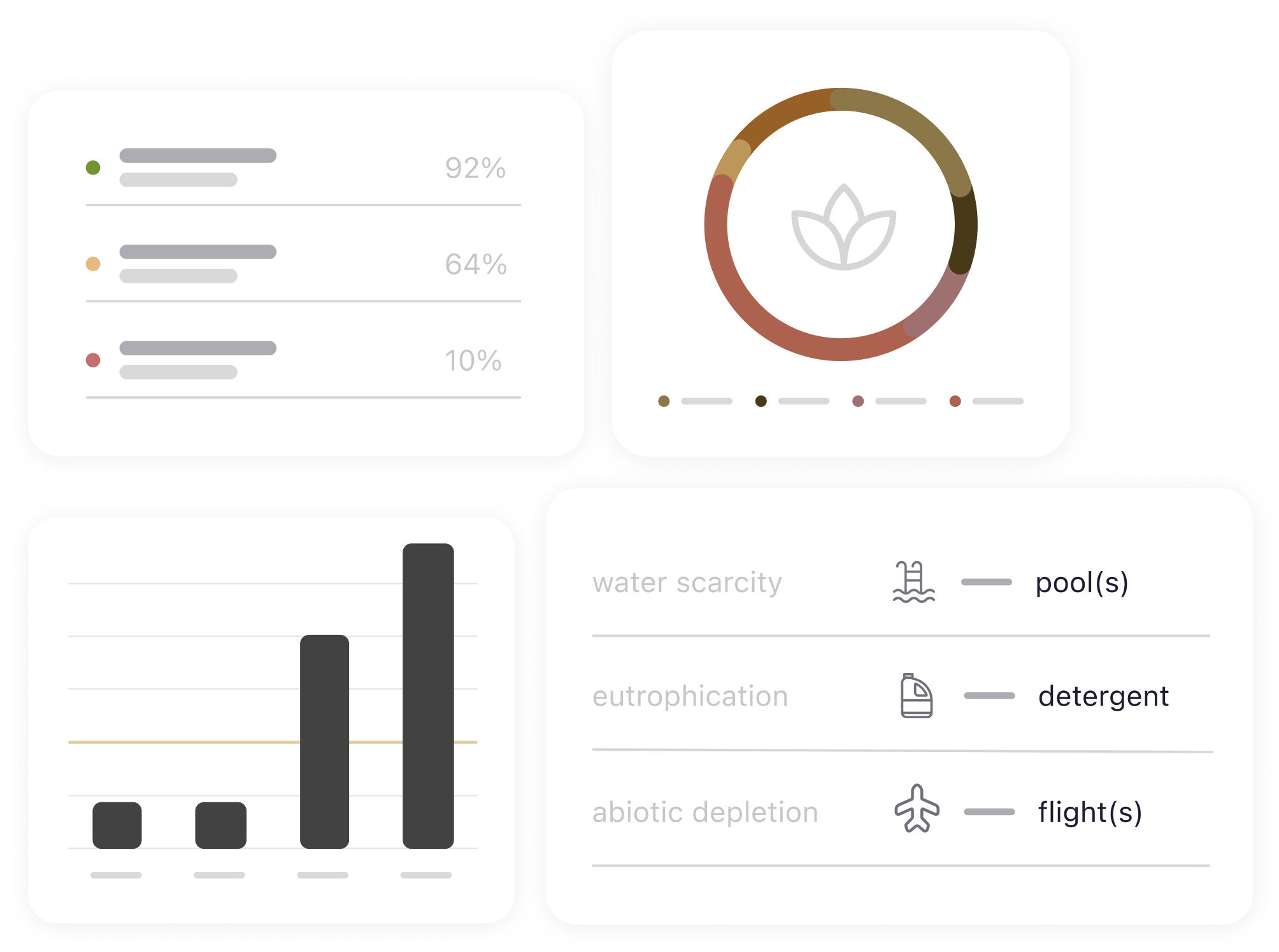The fashion industry is one of the most polluting industries globally, and the French government has taken steps to tackle the issue by implementing the AGEC law. This law aims to reduce waste and promote a circular economy. It requires companies to provide transparent and accurate environmental information to consumers, ensuring they are well-informed about the products they purchase. In this blog post, we’ll explain the AGEC law, its relationship with the fashion industry, and how BCome offers innovative solutions to simplify compliance for fashion companies.
The AGEC concerns the fashion sector for clothing textile products, linen, shoes, and household packaging
What is the AGEC law, and how does it relate to the fashion industry?
The AGEC law is the French law on the fight against waste and for a circular economy. Article 13 of the law harmonizes, regulates, and clarifies a range of environmental claims to provide consumers with clearer, more understandable, and more accurate information on the environmental qualities and features of waste-generating products. The law applies to new products intended for consumers from different industries. The AGEC concerns the fashion sector for clothing textile products, linen, shoes, and household packaging.
Who is responsible for implementing the AGEC law, and when did it come into effect?
Producers, importers, and any other market participant of the items concerned must publish a product sheet on their website or a dedicated web page presenting the environmental qualities and features of these items. The implementation of this law is progressive and based on the annual revenues of the brand and the number of units placed on the French market per year:
- As of January 1, 2023, the law applies to companies whose cumulative annual turnover for all products concerned during the last accounting year is over €50 million and whose cumulative number of units of all products concerned placed on the French market annually is over 25,000.
- From 1 January 2024, the law will apply to companies whose annual turnover is over €20 million and whose number of units is over 10,000.
- From January 1, 2025, the law will apply to companies with an annual turnover of over €10 million and still 10,000 units.
The implementation of this law is progressive and based on the annual revenues of the brand and the number of units placed on the French market per year
What are the key performance indicators to track?
Fashion retailers must track 4 different performance indicators:
- Traceability. I.e. the countries where the weaving or knitting, making, dyeing and printing stages were carried out for clothing and the stitching. And assembly and finishing stages for shoes.
- Incorporation of recycled materials. Including the percentage of recycled materials in the product.
- Release of plastic microfibers. According to the percentage of synthetic fibers in the product.
- Recyclability. According to a series of several specific criteria.
In addition, information about the packaging of fashion products must be disclosed:
- Incorporation of recycled materials
- Recyclability
- Possibility of reuse
BCome’s AGEC compliance solutions for fashion companies
As a Global Sustainability Management Platform, BCome offers a comprehensive and tailored solution to help fashion companies navigate the complexities of the AGEC law and achieve compliance in a timely and efficient way.
BCome’s technology helps fashion companies to measure their sustainability performance by collecting and assessing data along their value chains to have a broad visibility of its traceability and impact.
The platform’s innovative features include:
- Data collection throughout the entire product value chain, including gathering information from suppliers of raw materials, materials, and articles.
- Transformation of the results obtained into knowledge through a three-dimensional approach to sustainability to optimize the life cycle of products, and to make informed decisions based on their overall impact.
- Data digitization and interpretation to connect the physical product to a digital experience that discloses information in a transparent, honest, and understandable way. To achieve this, BCome has created a unique ecommerce script that works for all kinds of platforms, such as Shopify, Woocommerce or Prestashop, among others.
Overall, at BCome, we want to help brands comply with the AGEC law easily and simply. We understand that legislative changes impact the daily lives of brands and our mission is to facilitate processes and access to data.
First steps to address the AGEC law with BCome
To comply with the AGEC law together with BCome, your company will only have to follow a few simple steps:
- Coordinate the traceability of your supply chain involving a single person from your team, the Supply Manager, Product Manager or Sustainability Manager, if available. The data collection process will take about 3 to 5 weeks.
- Once traceability is completed, you can sit back and relax, your company impact data will be available on BCome’s platform in just 7 days.
- After the delivery of results, you’ll be able to run BCome’s digitization tools to easily share the information required by the AGEC law in each of your products.
The creation of impact labels is automatic thanks to BCome’s e-commerce integration and Smart Labels. Two tools that will allow you to quickly and accurately share all the information required by the AGEC law in each of your items.
Why teaming up with BCome is better than going solo when tackling the AGEC law?
Teaming up with BCome is a smarter and more effective approach than going solo when tackling the AGEC law for several reasons:
- Expertise. Our team of sustainability experts has years of experience working with companies in the fashion industry and is uniquely positioned to provide the guidance for successful compliance with the AGEC law.
- Efficiency. Complying with the AGEC law requires significant time and resources. By teaming up with BCome, you can automate the disclosure of the required indicators using our digitization tools.
- Reputation. Measuring your sustainability efforts through a third party like BCome can build your credibility as a sustainable business by providing an expert assessment of your sustainability performance.
We understand that compliance with the AGEC law is not just about ticking boxes. It’s about creating meaningful and lasting change. That’s why BCome offers a wide range of sustainability solutions to help fashion companies achieve their sustainability goals beyond mere compliance with the law.
Consequences of non-compliance with AGEC law in the fashion industry
Failure to comply with this legislation has consequences. A control and sanction system is provided for in case of non-compliance with the defined obligations and any breach is subject to administrative fines.
In addition, failure to comply with the AGEC law can have serious consequences for the reputation of a fashion brand, causing it negative publicity, damage to its brand image and loss of stakeholder confidence. It’s essential for fashion companies to comply with sustainability laws and regulations to protect their reputation and maintain their competitive edge in the market.
The AGEC law represents a significant step towards a more sustainable fashion industry. Compliance with the law requires companies to disclose accurate and transparent information on the environmental qualities and features of their products. BCome’s innovative solutions offer fashion companies the tools and guidance needed to measure and report their progress towards compliance. Contact us today to see our technology in action and discover how we can help your business thrive while making a positive impact on the planet.









